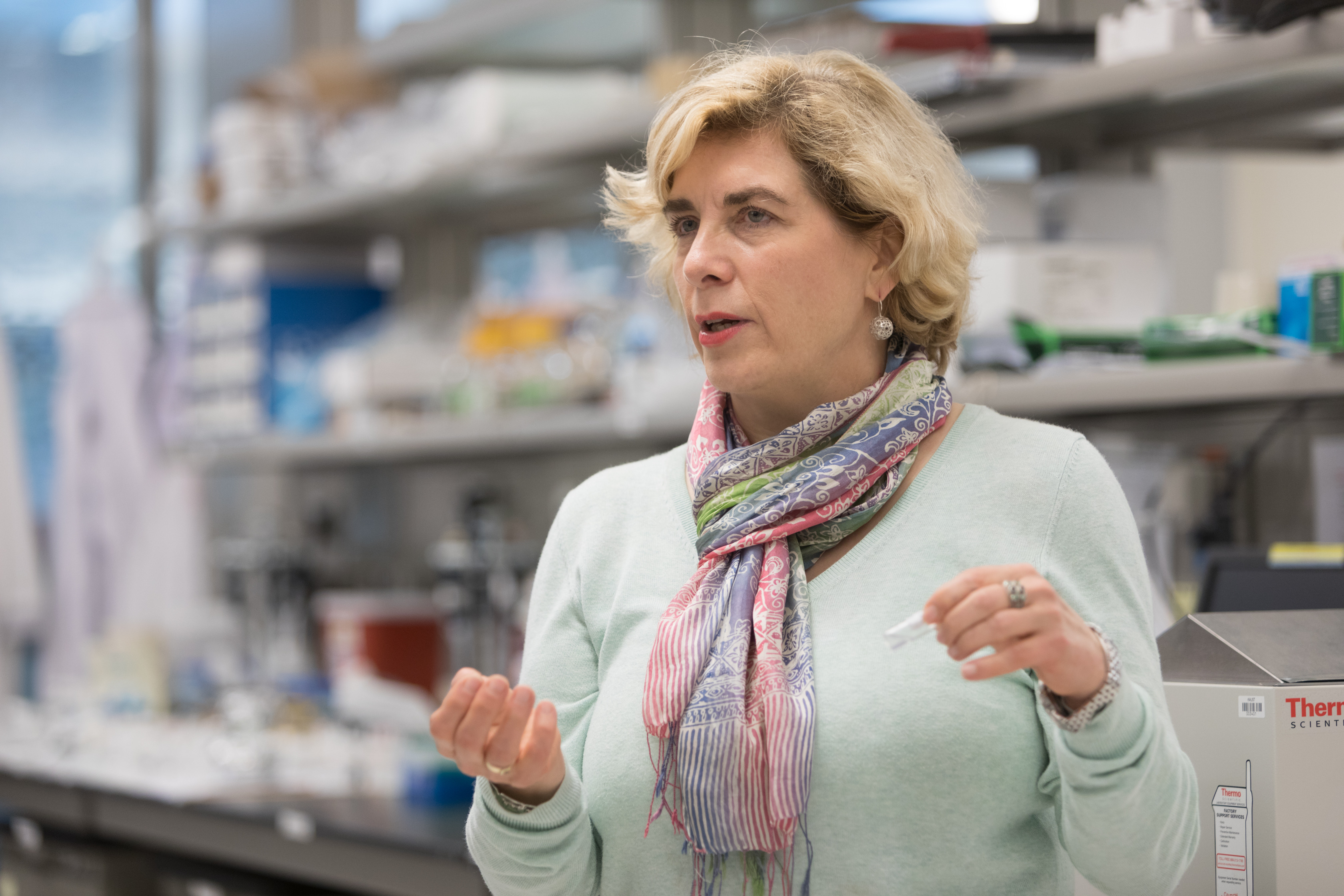How antibody testing can stem the spread of COVID-19

KAUST Professor of Bioengineering, Charlotte Hauser. Photo by Sarah Munshi.
Hauser’s research comes in response to the current testing capacity for the virus, “which is not sufficiently accurate,” and often does not identify infected individuals without symptoms, according to the professor, who is also the chair of the bioengineering program at KAUST.
Cost effective and easy to use
Her research tackles rapid immunodiagnostic tests, which are useful measures for the detection, management and control of the increasing spread of the SARS-CoV-2 virus. They utilize a technology called ELISA, which is based on serological testing, a diagnostic method used to recognize antibodies induced by the virus. The presence of the virus itself can also be detected using this technology, making it a powerful tool.
“Together with my research group I am working on developing a testing device in the form of a dipstick or a “lateral flow test” device similar to a pregnancy test," Hauser said. “This diagnostic test device should be both cost effective and easy to use."
Immunodiagnostic antibody tests are aimed at improving accuracy in the diagnosing of infected people who have no symptoms and who produce false negative results in Polymerase Chain Reaction (PCR) testing. Unlike PCR testing, which is commonly used in the diagnosis of infectious diseases, immunodiagnostic tests verify if antibodies have developed in response to a viral infection. Antibodies take a few days before they are clearly developed in an infected person’s bloodstream.
“The test works by drawing a small amount of blood and placing it on a test strip . If antibodies are present in the blood, they will directly bind to the virus proteins that are specific to them, and this specific binding is made visible by a color reaction,” she said.
Giving PCR a helping hand
Although, in general, PCR tests are more sensitive than serological tests, they are also more prone to producing false negative results. The addition of immunodiagnostic tests, in the diagnostic process, could help reduce false negatives and could aid in the identification of people who are unknowingly spreading the disease.
"The COVID-19 virus mutates rapidly which is a serious challenge for accurate testing. Stringent and continuous testing of the population is important, which can be done using a combination of both PCR and antibody testing," Hauser said.
Tracking of the infected, asymptomatic population using antibody testing, could help to stop further spread of the virus, particularly in the early stages of an outbreak. While a good number of infected people show symptoms, many are asymptomatic and do not show symptoms.
“PCR tests cannot help identify asymptomatic people. For that, you need serological testing,” Hauser said.
Immunodiagnostic antibody tests are an important tool because they can detect antibodies in symptomatic and asymptomatic populations. And it's important to test for antibodies, even though it can be challenging, as only people with symptoms tend to seek medical help. For these, and many other reasons, Hauser's team is working overtime to make faster, easier detection of the virus, and the antibodies leftover from infection, a life saving reality.

